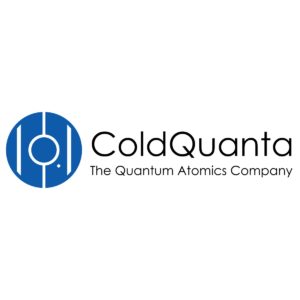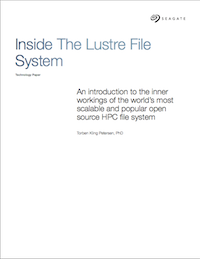 In this podcast, the Radio Free HPC team looks at quantum computing company ColdQuanta.
In this podcast, the Radio Free HPC team looks at quantum computing company ColdQuanta.
The company is focused on measurement and sensing but also mention straight computation, the latter like most of the other quantum competitors. They were the first company to put their quantum computer in space and the first to create Bose-Einstein Condensate while in orbit at the International Space Station.ColdQuanta is headed by an old pal of ours Bo Ewald and has just come out of stealth mode into the glaring spotlight of RadioFreeHPC. They have a unique approach to quantum computing, trapping atoms themselves to create Bose-Einstein Condensate. This is a fifth state of matter, which matters quite a bit. When you freeze a gas of Bosons at low density to near zero you start to get macroscopic access to microscopic quantum mechanical effects, which is a pretty big deal. With the quantum mechanics start, you can control it, change it, and get computations out of it. The secret sauce for ColdQuanta is served cold, all the way down into the micro-kelvins and kept very locally, which makes it easier to get your condensate.
Other highlights:
Jessi: Want to chill out and help NASA at the same time? Jessi has found a way with NeMO-Net, a game where users cruise through an animated ocean floor and classify coral structures. Your answers are then fed into NASA’s Pleiades supercomputer, which uses the data as fodder to improve it’s own identification prowess. It’s a great way to while away the hours during these Covid19 shut downs, right?
Shahin: has two catches, the first is a celebration of IBM’s quant-iversary, marking the fourth anniversary of them having a quantum computer on the web – many happy returns to Big Blue. They’re also sponsoring a contest, see the web link for details.
In his second catch, Shahin shamelessly promotes his recent talk at the HPC AI Advisory Council virtual Stanford conference. He did a great job on covering just about every buzzword topic in the industry in only 30 minutes, well done.
Dan: Dano likes fast things and seeing fast things get even faster. This is what attracted him to the story about ISV Risk Fuel and Microsoft’s Azure posting an article boasting a 20 million x speedup of derivative processing. A 20 million times speedup of anything is pretty significant and they achieve this with a combination of 8 NVIDIA V100 GPUs (w/32GB memory each), InfiniBand and Risk Fuel’s amazing software. What’s great about this is that with this speed the model has complete fidelity with traditional calculations. In other words, you can speed all you like without any downside when it comes to accuracy – amazing stuff.
Download the MP3 * Follow us on Twitter * Subscribe on Spotify * Subscribe on Google Play * Subscribe on iTunes * RSS Feed





